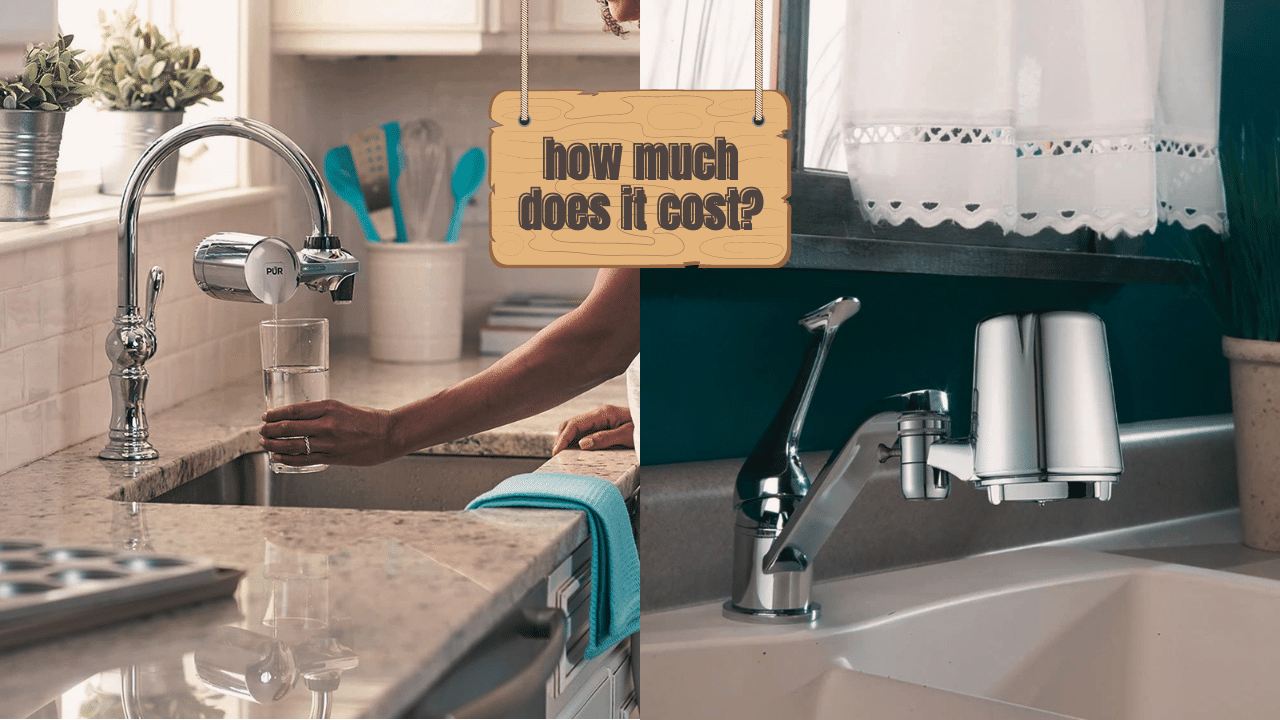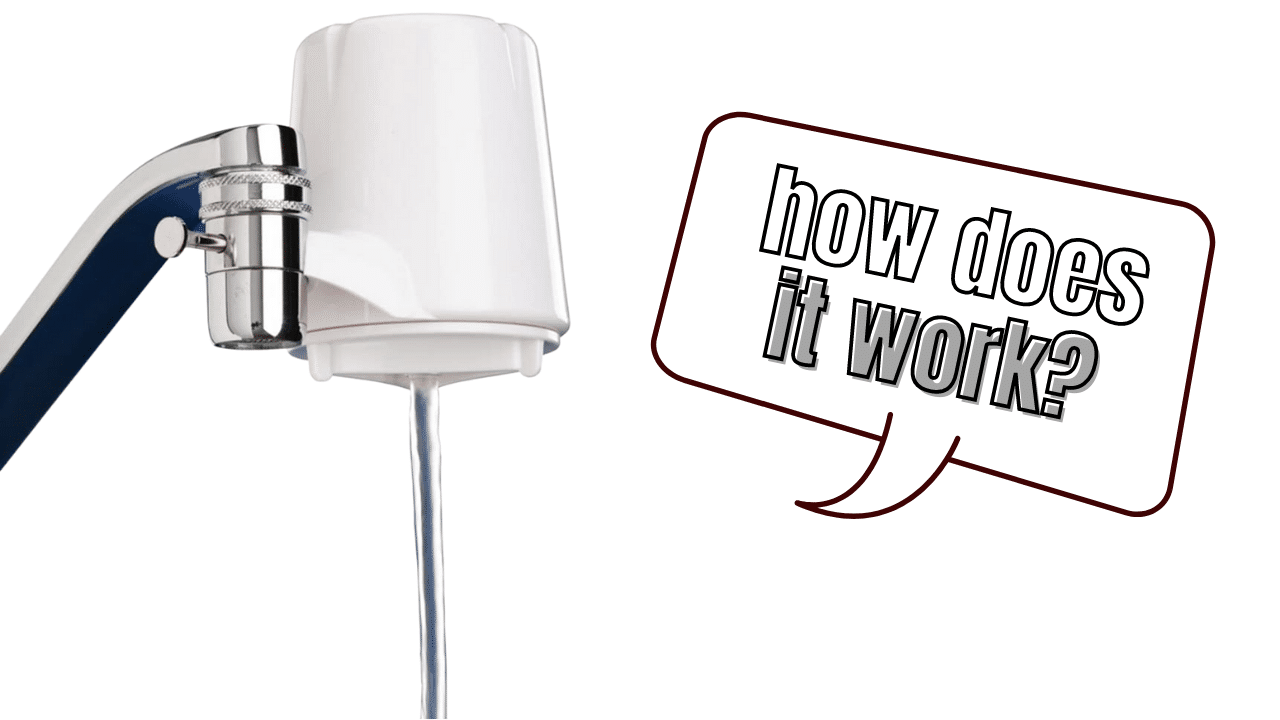Many homeowners are still under the impression that their home's tap water is safe for consumption. But unfortunately, such is not the case for everyone. It's why four out of ten American households turn into filtration systems to ensure their home has a water treatment unit.
In particular, faucet water filters are among the most widely used systems for this reason. They remove contaminants found in tap water, including bacteria and heavy metals like lead to give you healthier water.
If you're still on the fence with questions such as: "Are faucet filters genuinely effective?", "Is it worth the investment?". We're here to shed light on the effectiveness of a faucet water filter to help you determine if it's what you need.
Faucet Water Filters Average Costs

On average, a regular faucet-mounted water filter will cost you anywhere between $75 and $200 (or more).
The total price will ultimately depend on the filter’s brand and its features– including the likes of two-stage or three-stage multiple filters or infusing flavors (fruit) into your filtered water. (Related: The Best Faucet Water Filters For Less Than $50)
Are Faucet Water Filters Truly Effective?
In essence, determining the effectiveness of a faucet water filter will depend on how you use the system. Water filtration-wise, you can depend on this filter to get the job done. It is known to remove common water contaminants such as chlorine and lead while reducing the number of sediments in the water.
It also improves its taste and eliminates any foul odor in your drinking water– giving you better drinking water quality by 20%.
Homeowners dealing with highly contaminated water may not benefit from a mere faucet water filter. Consider Reverse Osmosis (RO) water systems instead, with up to 95% efficiency in providing you the purest water possible.
How Does a Faucet Water Filter Work?

Now, let's discuss how a typical faucet filter works. First, it traps various sediments such as dirt and sand to ensure your water is completely rid of chlorine and lead. After you mount the system on a faucet tap, the metal/plastic housing will surround the point where the water enters.
In the housing, a filter cartridge handles all the filtration processes. This involves the following steps:
Benefits to Expect with a Faucet Water Filter
Here’s what you can expect in adding a faucet water filter at home.
Removes Contaminants Found in Tap Water
Perhaps the primary reason to install faucet filters at home is to ensure all lingering contaminants in the faucet water are removed. The Environmental Protection Agency (EPA) claims over 90 common contaminants in drinking water, including arsenic, lead, and microbial contaminants.
Note: Water faucet filtration systems need regular filter replacement (depending on the manufacturer guidelines). As such, you may want to buy a replacement filter cartridge to keep as a backup at home.
This ensures no build-up from the contaminants, as it may only hinder your water filter system from purifying the water.
Minimizes Bacteria and Heavy Metals Build-up
Some faucet filters leverage an advanced reverse osmosis method to eliminate lingering contaminants or dissolved solids. You can often find this feature in more advanced filters.
Eliminated Lead from Outdated Water Systems
Several municipalities and American households continue to rely on outdated water filtration methods– where lead pipes transport water to your tap. This is common in old homes built before 1986.
Over time, corrosion may dissolve the lead and allow it to leach into your water. That said, modern water filtration systems such as faucet filters are designed to comply with EPA's Lead and Copper Rule.
If you have children or pregnant women at home– your family may be at an exposed risk of lead contamination. Thus, opt to install a faucet filter to remove any traces of lead in the water you consume daily.
Encourages Hydration Daily
Simply put, you're more likely to drink more water daily if you know it comes from a reliable water filter system. Since the water is odorless and better-tasting, there shouldn't be any unappealing reason for you to avoid drinking more water.
In contrast, unfiltered tap water may have contaminants such as hydrogen sulfide, giving it the same smell of rotten eggs and a red-orange hue from copper. Trust us, it's not appealing to drink, especially if you just want to quench your thirst.
Environment-friendly as it Eliminates the Need for Plastic Bottles
Instead of relying on plastic water bottles, you can invest in a faucet filter at home. Doing so reduces the number of microplastics and toxins you may ingest (or are otherwise released in the air). It will also help you cut costs on purchasing bottled water from stores– which may only add up over time.
With a faucet filter, you'll ultimately have a limitless supply of purified water. This investment gives you the convenience of having filtered water available at all times. Having constant access to clean, filtered water at home is essential to ensure you're adequately hydrated and safe.
As such, a faucet filter is a quick and easy way to eliminate any lingering contaminants in the water. It also lessens the microplastics found in the tap.
Frequently Asked Questions (FAQs)
What is the difference between water filters and water purifying systems?
Filters and purifiers are two entirely different things. The filtering process is about taking out larger contaminants in treated water. As you drink filtered water, you can usually smell the unpleasant odor left when the water is treated with bleach and other chemicals. Furthermore, it also consists of chlorine and lead, which is not suitable for your health. On the other hand, purifying is about taking out everything using a filtration system, including tiny particles such as arsenic. You must cleanse the water when it is improperly treated or untreated. Reverse Osmosis (RO) is ideal for this water purifying system.
Is a water faucet filter a good investment?
Yes, it is a good investment, especially for your health. Aside from being easy to install, it also offers purified water all the time and motivates you to drink a lot of water. Tap water may not be as safe as it appears because we cannot know or see what is present in the water. The faucet filter will help ensure that impurities, particles, and contaminants are eliminated when it comes out of your tap.
Do I really need a water filter?
Dangerous chemicals including nitrate, arsenic, chromium, and radium have been found in tap water. Even though a municipal water treatment system can completely purify water, it can still leach lead and other contaminants through pipes and fixtures once transported from city centers to your home. To ensure the safest and most effective way to access healthy drinking water, installing a water filtration system in your home is the way to go.
